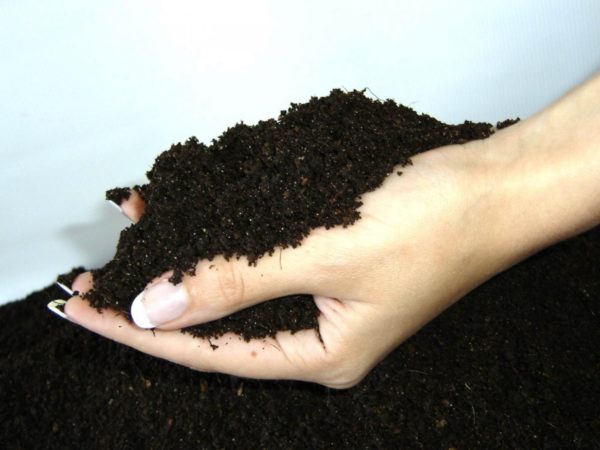In gardening, fertilizers are often used to increase yield and improve the quality of garden crops. Preference is given to natural species without chemical additives. Mostly emit biohumus, which has passed a series of studies and tests in many countries. What it is and how to use it in the garden will talk further.
Table of contents
What is biohumus
Biohumus is an organic fertilizer with an exceptional composition optimized for all kinds of plants.In its formation, the main role is given to worms, which consume the remnants of agricultural waste and ultimately produce a balanced coprolite.
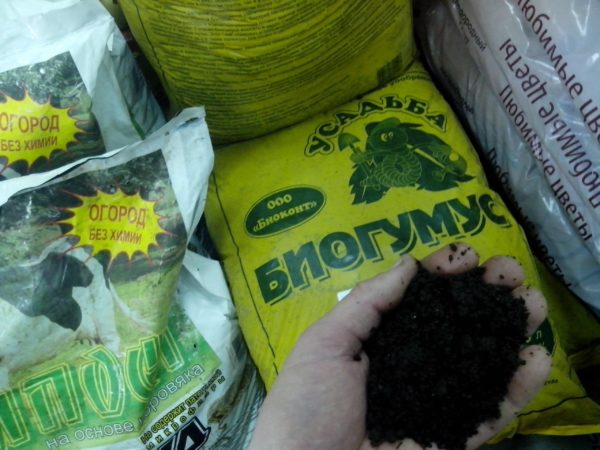
Composition and purpose
The composition of the product contains enzymes, plant growth hormones, soil antibiotics, micro and macronutrients:
- iron,
- nitrogen,
- phosphorus,
- potassium,
- sulfur.
At the same time, the composition of biohumus in insignificant concentrations includes: boron, manganese, copper, zinc. These ingredients help transform mineral compounds into amino acids and unwanted metals and nitrates do not accumulate in the vegetation.
Beneficial features
- Improves plant survival.
- Promotes rapid germination of seeds.
- Enriches the soil.
- Accelerates the ripening of fruits.
- Increases the amount of the crop.
- Improves the quality of taste.
- Detrimental effect on pests.
- Strengthens the immune system of plants.
- Does not contain weed seeds, eggs and insect larvae.
- Used annually.
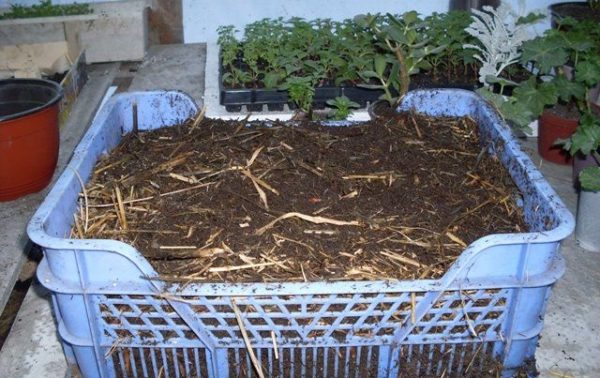
Fertilizer benefits
Another advantage is that it does not litter the ground. For example, after feeding manure, debris grows by 30-40%.
Manure is not used for breeding seedlings, while biohumus is used. It does not oxidize the soil, unlike manure. In the manure there is a pathogenic flora, which is harmful to the human body, and biohumus is safe. It exceeds the humus content of nitrogen. The introduction of this fertilizer is highly effective and does not bear negative sides.
Instructions for use
Biohumus cultivate the soil when plowing the ground. 250 -350 ml of dry extract are added under each plant. Then thoroughly mixed with the ground. Most effectively, he proved himself when sowing potato culture.
During planting vegetables and flowers use a larger amount of fertilizer - 400-450 ml. For fruit trees (apples, plums, pears) make 3-4 liters. For raspberries, currants, gooseberries 1.5-2 liters will be enough. After adding it is stirred with the ground. Next, the plant is fertilized every 10 - 14 days until flowering.
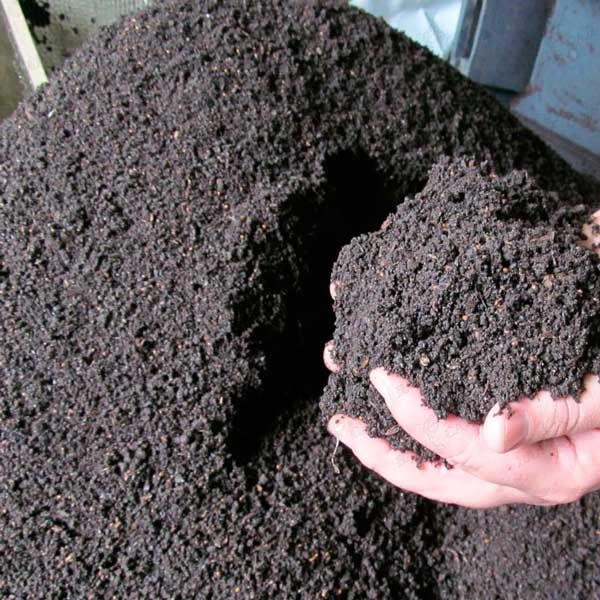
In addition to dry, liquid biohumus is also used (“vermicompost tea”)
To prepare liquid fertilizer, you must use 1 liter of concentrate per 10 liters of water.Infusion is kept in a warm place for 3-5 hours, stirring occasionally. The finished solution is watered beds with seedlings. Consumption rates - 10 liters per 1 m2. Top dressing in early spring should be carried out once in 15 days and finish after flowering. To prepare for the winter, trees and shrubs are watered with a liquid product in the autumn.
Biohumus for indoor flowers
The substance is useful not only for garden crops. The use of home flowers in fertilizing shows a favorable result. For fertilizer indoor plants used biohumus in liquid form. The mixture retains useful bio-components and gives the following effect:
- soil microorganisms are formed that promote the formation of humus
- provides plants with nutrients
- develops root system and rich flowering
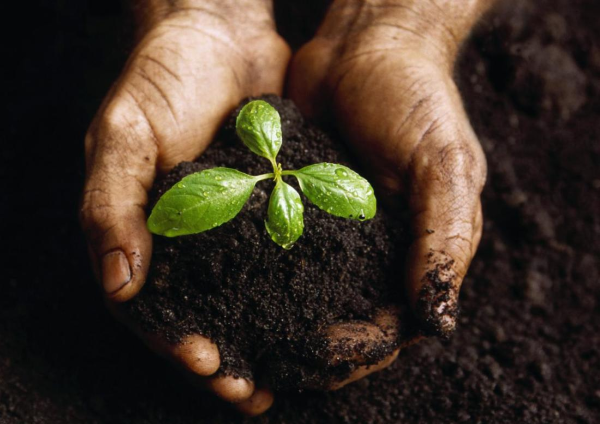
Security measures
Since the substance is safe, it is enough to follow the rules of personal hygiene when working with fertilizer.Use rubber gloves and wash hands with soap and water after work. Fire and explosion proof. Poisoning excluded.
How to make biohumus at home
Stages of creation:
- cleaning vegetables and fruits, husks of seeds, egg shells, bread crumbs are ground with a blender or meat grinder;
- dry the resulting mass using sawdust or cardboard;
- prepare a container of 0.5 meters, lay on the bottom of the ground with a thickness of 3 centimeters and run worms there;
- to make holes at the bottom of the container, for the release of excessive moisture and in the lid - for the access of air;
- mix organic matter with the earth;
- waste is added as it is processed by worms (2-3 weeks);
- make sure that the base does not dry out, occasionally watered with warm water.
Worms will live in the upper part of the box, and all that is below - biohumus. He will be ready in four to five months. After the container is full, the contents will need to be removed.
Compost worms
Worms can be found themselves, or buy in the store. When buying, pay attention to the mobility and color of the worms. Red Californian worms are more commonly used.They live for a long time and work quickly, as well as actively reproduce, but do not tolerate low temperature. There are also other types of worms: prospector, rain and earth.
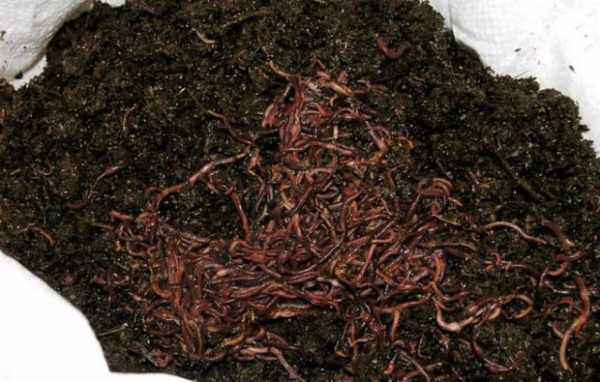
This type of fertilizer includes 7-9 times more humus than cow manure or compost from plant waste. The advantages include good water capacity, friability, compatibility with other organic fertilizers. It is recommended to store fertilizer in a dark dry place, avoid direct sunlight. When freezing and defrosting does not lose its qualities. Shelf life and a half years.
The use of natural fertilizer is rapidly gaining popularity among summer residents and farmers. Safety and affordable price of biohumus is superior over all possible inorganic fertilizers. Its production on vermfermah is also a promising business.
